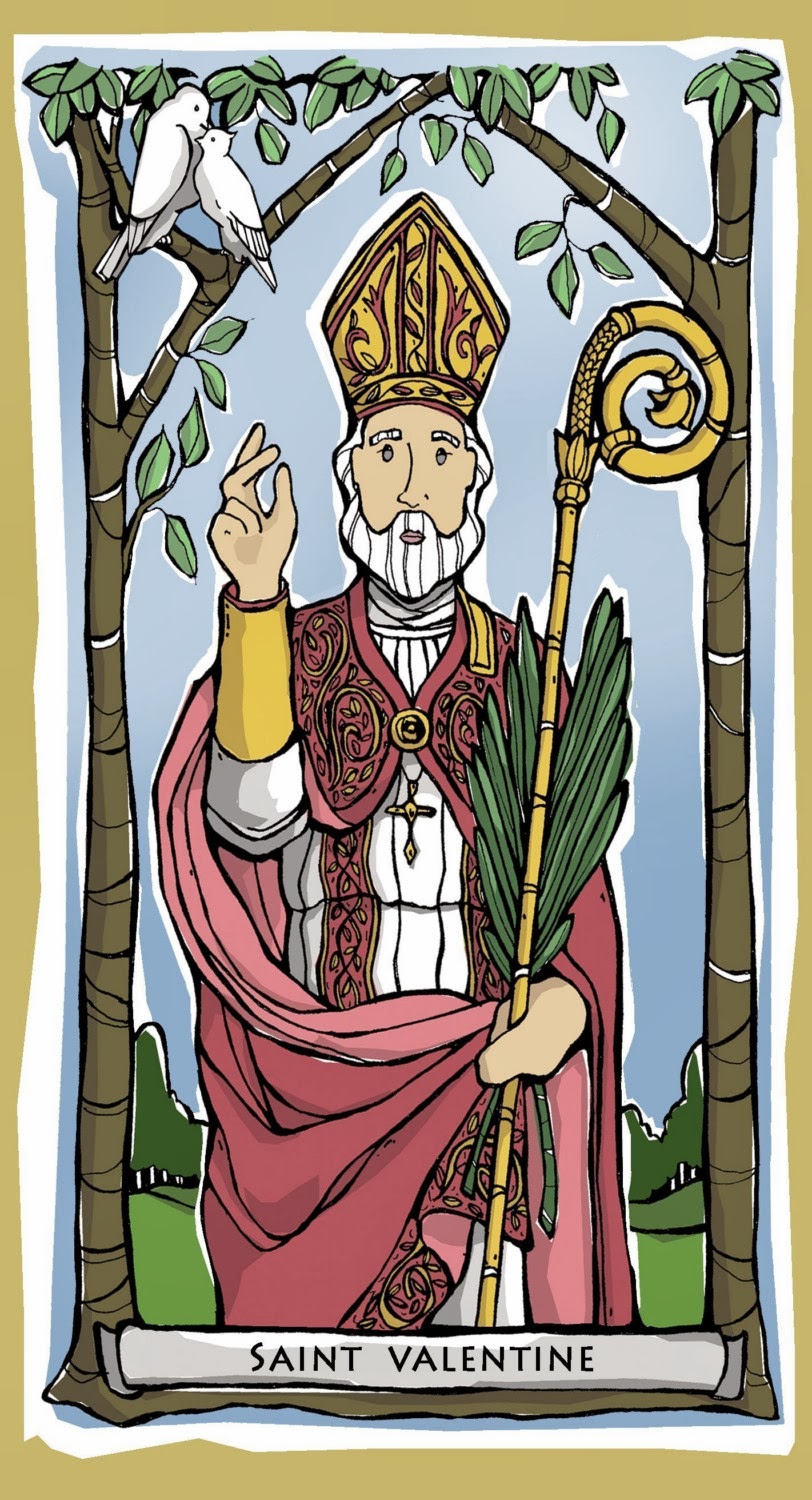Your Valentine
Pastor’s Epistle—February,
A.D. 2014 A
The
name February literally means purification. By this time of the year, the
autumn harvest and winter stores so diligently prepared by our ancestors would
begin to run low. February became a time of fasting, a time when food had to be
rationed lest it run out before the spring. And fasting has always been
associated with purification. In other words, this is when folks historically
have really gotten sick of winter.
But
February also brings the promise of the approaching spring. In some climates—not
Minnesota, mind you, but many other parts of the Western world—certain flowers
such as snowdrops begin to push up through the crust of ice. The days grow
noticeably brighter, refreshingly longer. Winter has yet to depart, but we can
see the signs of its waning. Goats and sheep begin to lamb, providing milk
amidst our winter scarcity. The earth is starting to stir again, to begin anew.
It is a time of great hope: the return of light to the world. Christians
express such hope in the celebration of Candlemas, about which I wrote at
length in last
month’s newsletter.
Two
weeks on, however, a second holiday arises, one a bit more familiar to the
general public. I write, of course, about St. Valentine’s Day. Those familiar
with history will recall that ancient Rome had a particular fondness for
wolves. Romulus and Remus, the mythical founders of Rome, were said to have
been suckled by a she-wolf as infants, and so the she-wolf became a symbol of
the Eternal City herself. On February 15th, Romans celebrated the Lupercalia, a
fertility festival marking the beginning of the wolves’ mating season. Wolves,
they knew, mate for life, and so all of February became jam-packed with
holidays celebrating marriage, childbirth, and amorous adventures in general.
For thousands of years, it has been the most romantic of months.
Enter
St. Valentine. Legend has it that during the reign of Emperor Claudius II, Rome
suffered from a dire need for soldiers. The Legions demanded 20 full years of
service before retirement, and though benefits were good this was clearly not a
career conducive to family life. For young potential recruits, the choice became
that between wedded wife or army life—and many picked the pleasures of home
over the rigors of the road. Frustrated, Claudius forbade all marriages, hoping
to goad restless young men into taking up arms.
Valentine
was one of the priests willing to defy the Emperor’s ban and perform marriage
rites for the lovelorn. After all, what authority had the government to
interfere with God’s sacrament of holy wedlock? As with any political
dissident, Valentine was incarcerated and sentenced to death, yet during his
tenure in prison a multitude of admirers sent him lavish floral bouquets. (Roses
were sacred to a variety of pagan love goddesses, but for Christians they
represented the five wounds of Christ, the Virgin Mary, and the blood of the
martyrs.) The jailor’s daughter in particular showed him kindness, and as he
was taken out for beheading he left her a note of thanks signed, “With Love
from Your Valentine.” In a bitter irony, the Emperor executed him on February
14th, A.D. 269—the celebration of Juno, goddess of marriage.
In
honor of St. Valentine, and of how our love more generally reflects the love of
God, St. Peter’s will be hosting a very special Valentine’s dinner. Come early
for the wine social, then enjoy a catered candlelight meal with entertainment
to follow. (Suggested donation, $15. RSVP!) All are welcome, as couples,
singles, or families. Let us raise a glass to the wonderful madness of romance,
and to the love that still leads our youth to forsake sword and spear in favor
of hearth and home. Amor vincit omnia—love, as they say, conquers all.


Comments
Post a Comment